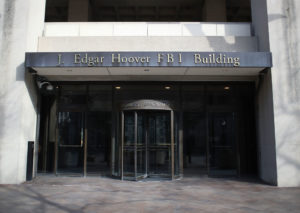
Kevin Daley on June 19, 2018
The Department of Justice’s inspector general is investigating a series of episodes where FBI employees received free perks from journalists.
The probe is still underway, but the inquiry’s general contours are well-established, and penalties surrounding the alleged conduct will likely be rigorous, former assistant FBI director Ron Hosko told The Daily Caller News Foundation.
“Because this conduct was highlighted in the report and diminishing to the FBI’s reputation, I think the Office of Professional Responsibility will take it very seriously,” Hosko said. “We’ll likely see some examples come out where people are getting harsh punishment.”
The Thursday reportfocused on how Justice Department and the FBI handled the investigation into Hillary Clinton’s private server. It also identified specific instances where employees accepted gifts from reporters, including tickets to sporting events, golfing outings, drinks, meals and admittance to nonpublic social events.
Either the IG or the FBI’s internal affairs team handle investigations of this nature. Hosko told TheDCNF that the IG is more likely to handle matters deemed serious. If the IG chooses to investigate a particular set of facts, the FBI will place its internal probe of the same issue on hold.
If the IG does not issue a final finding, Hosko explained the matter may be referred back to the bureau. At that juncture, internal investigators would gather evidence of their own with an eye toward interviewing the suspected offender.
An alleged offender eventually receives an administrative warning indicating that they are required to answer questions at the risk of termination if they don’t cooperate. Ultimately, the bureau’s internal affairs division generates a report for the Office of Professional Responsibility (OPR).
OPR then determines what penalties, if any, are required in conjunction with the head of the offending employee’s division. If punishment is warranted, senior agency officials reference the Douglas Factorsto consider potential penalties.
According to the federal Office of Personnel Management these factors include:
- The notoriety of the offense or its impact upon the reputation of the agency;
- The employee’s past disciplinary record; and
- Consistency of the penalty with those imposed upon other employees for the same or similar offenses.
Penalties might include suspension, demotion from the senior executive service or termination. Government employees can appeal punishments.
The particulars of the gift-giving allegations aside, the report also identified a pervasive culture of unauthorized contacts with the press inside the FBI. The report cautions that oversight officials are unlikely to identify individual leakers.
“We frequently find that the universe of DOJ and FBI employees who had access to sensitive information that has been leaked is substantial, often involving dozens, and in some instances, more than 100 people,” the report explains. “The large number of FBI employees who were in contact with journalists during this time period impacted our ability to identify the sources of leaks.”
Send tips to [email protected].
